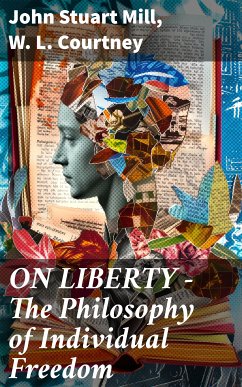In the collection 'ON LIBERTY - The Philosophy of Individual Freedom,' readers are invited to explore the profound and multifaceted discourse surrounding the theme of liberty. Drawing from a range of literary styles, from abstract philosophical essays to more direct social commentaries, this anthology presents a rich tapestry of thoughts that dissect and expand upon the concept of individual freedom. The selected works not only highlight the philosophical underpinnings of liberty but also grapple with its implications in diverse real-world contexts, offering readers varied insights into the enduring significance of freedom. The authors, John Stuart Mill and W. L. Courtney, underpin this collection with their profound intellectual legacies. Mill's seminal contributions to the philosophy of liberalism are complemented by Courtney's perceptive analyses, which offer a broader, historically anchored understanding of freedom. These authors, positioned at the intersections of 19th-century liberal thought and social reform, bring to life a dialogue enriched by historical and cultural dimensions, weaving together voices that reflect both the transformative potential and the complexities of liberty. This anthology serves as an essential read for those eager to immerse themselves in the dynamic interplay of philosophical thought and societal application. Offering a unique opportunity to engage with multiple perspectives on a central theme, this collection not only educates but also provokes critical reflection and dialogue. Readers are encouraged to delve deep into these pages, where the philosophical meets the personal, and liberty finds its myriad expressions, making it a compelling addition to any intellectual pursuit.
Dieser Download kann aus rechtlichen Gründen nur mit Rechnungsadresse in A, B, BG, CY, CZ, D, DK, EW, E, FIN, F, GR, H, IRL, I, LT, L, LR, M, NL, PL, P, R, S, SLO, SK ausgeliefert werden.









